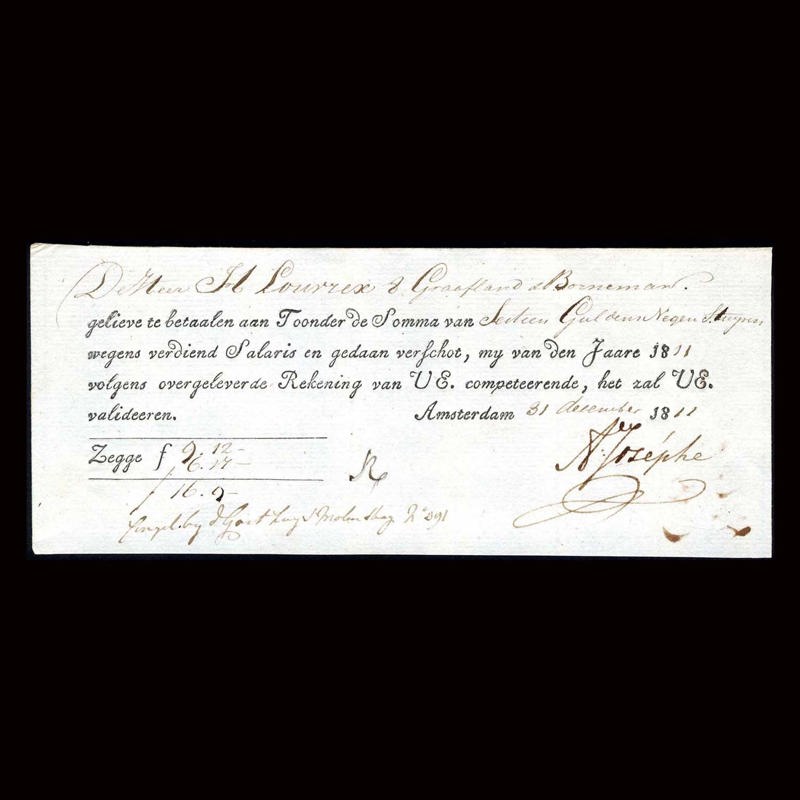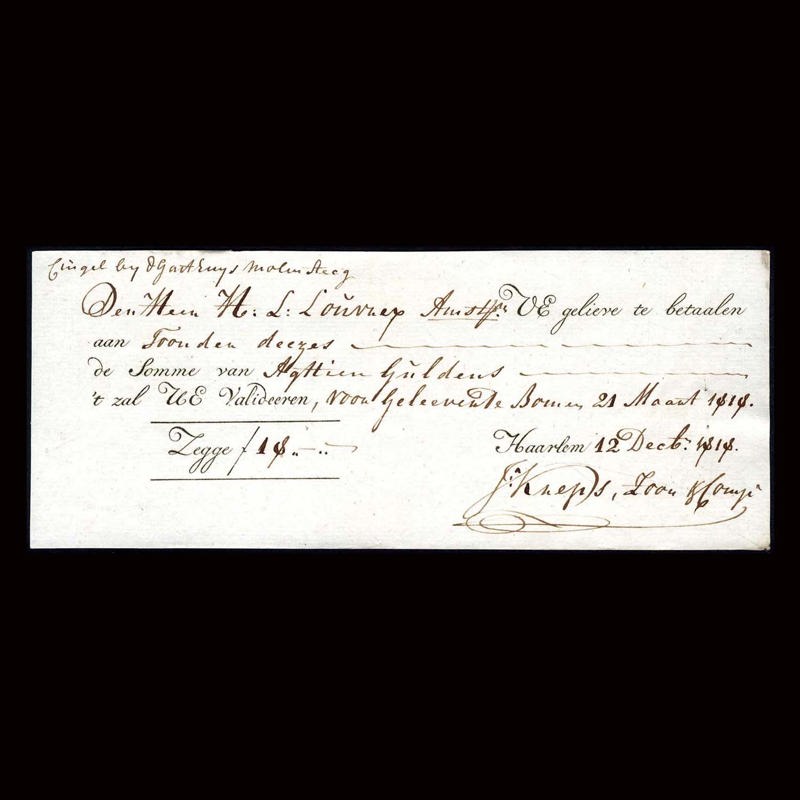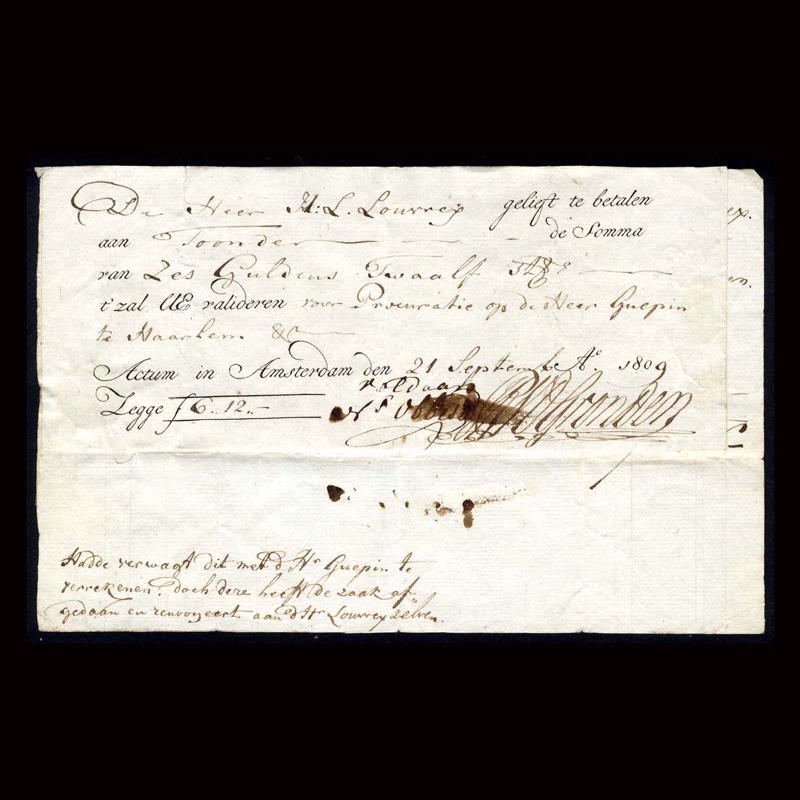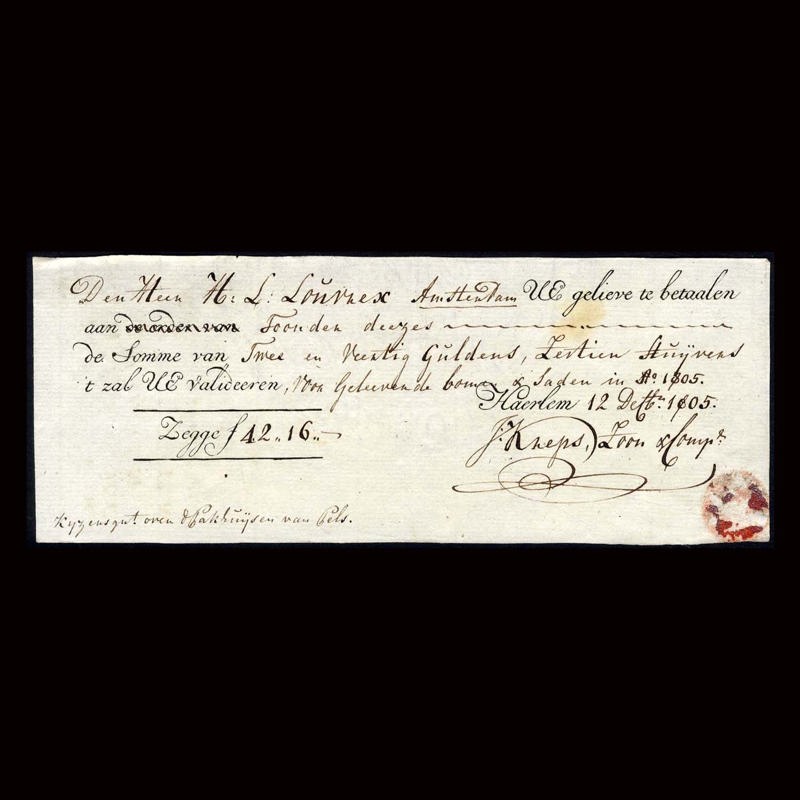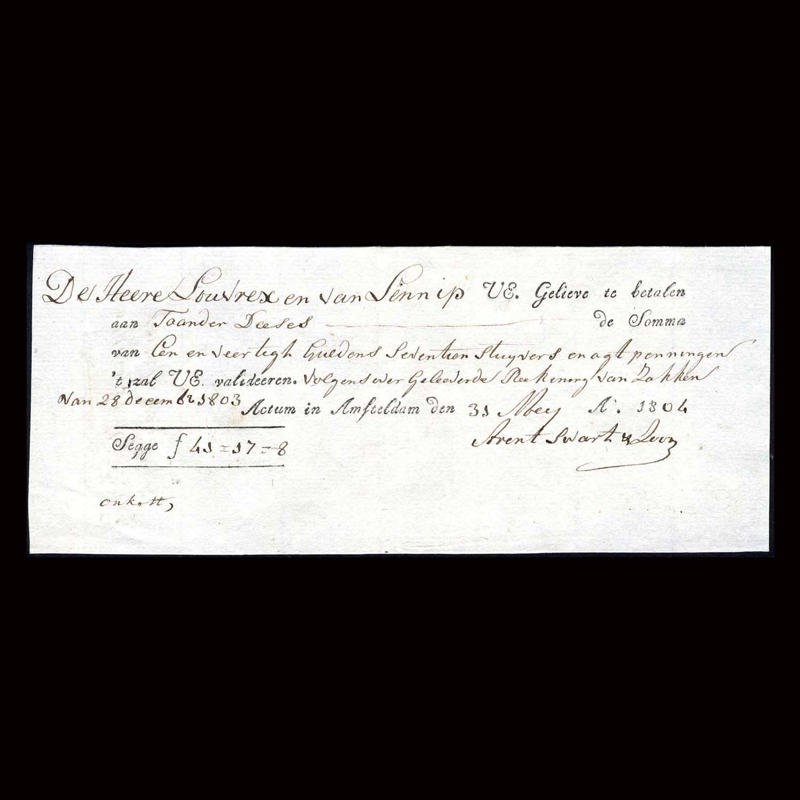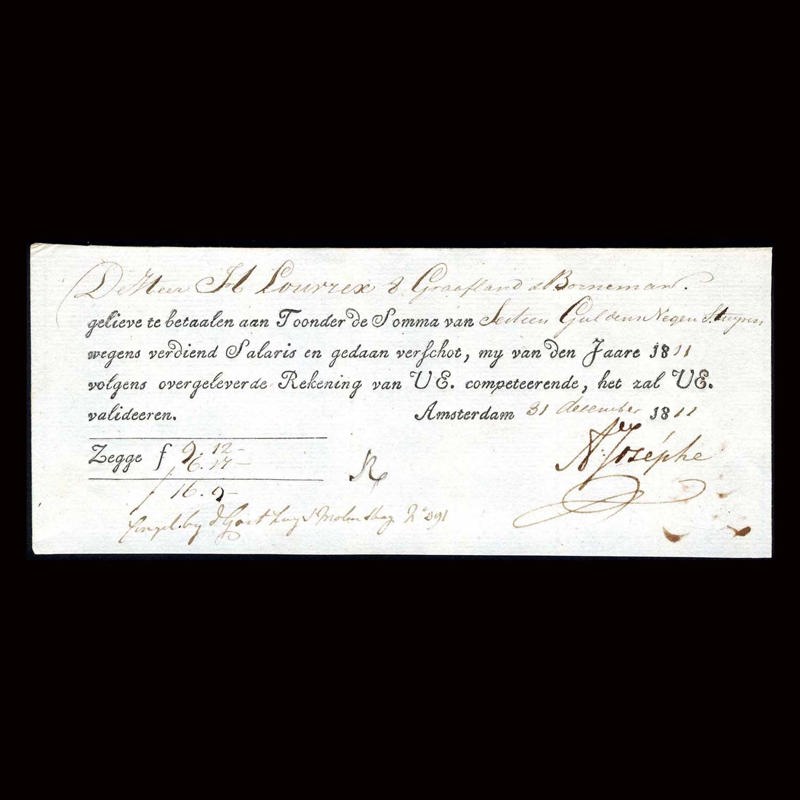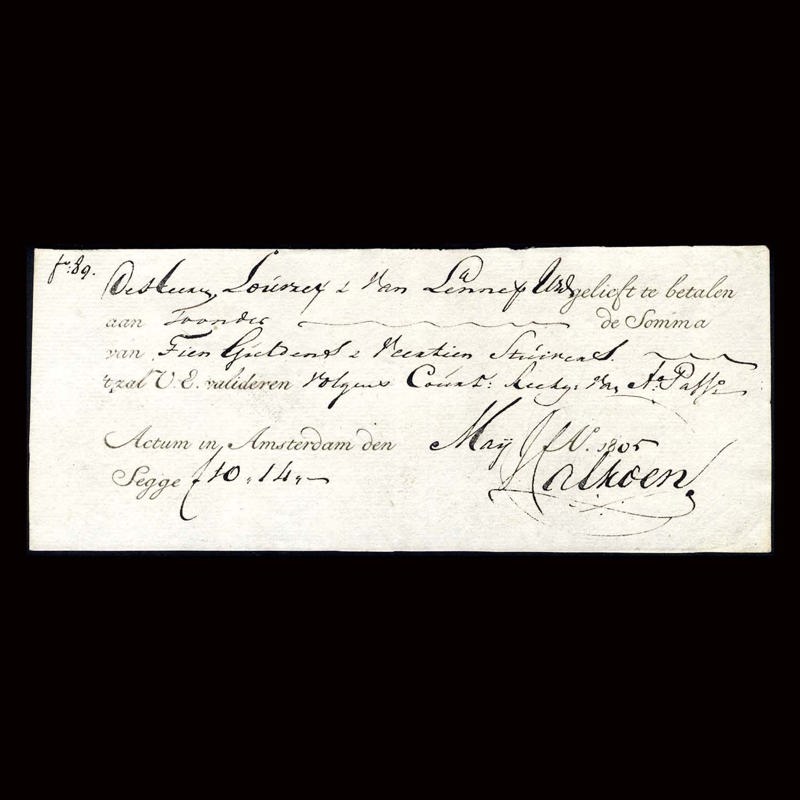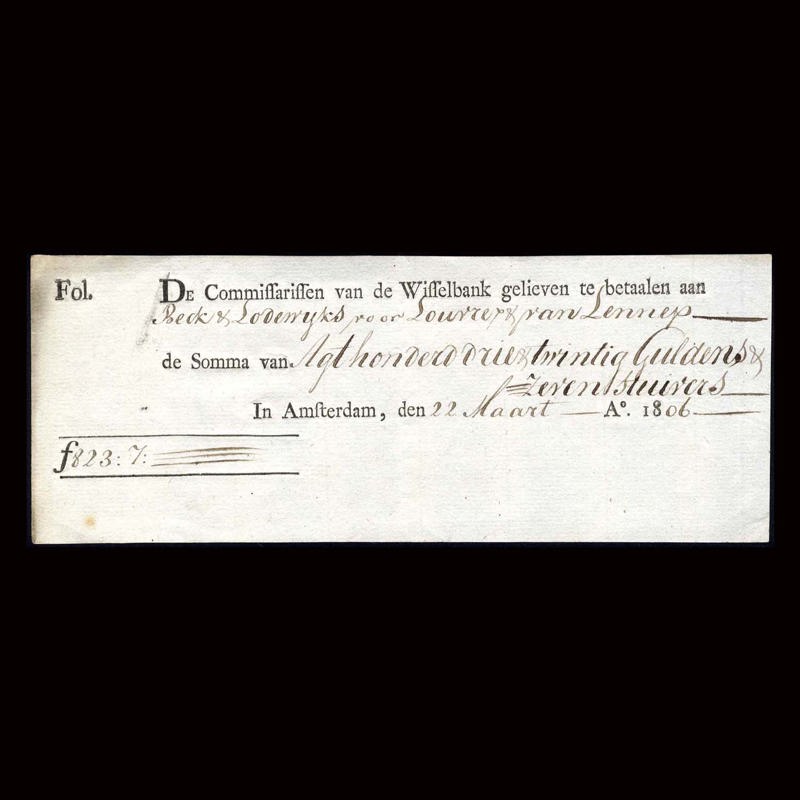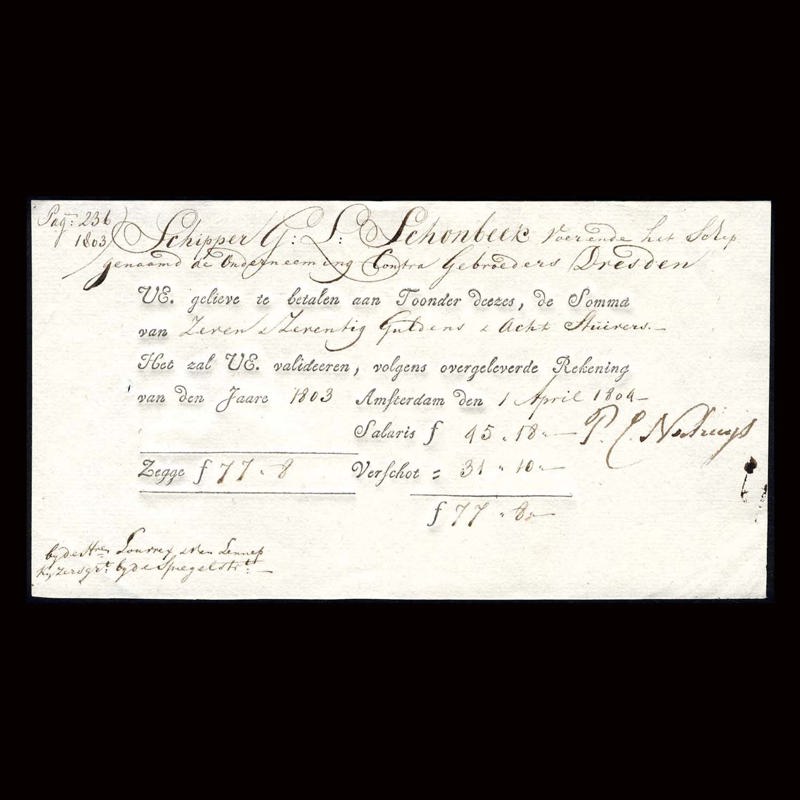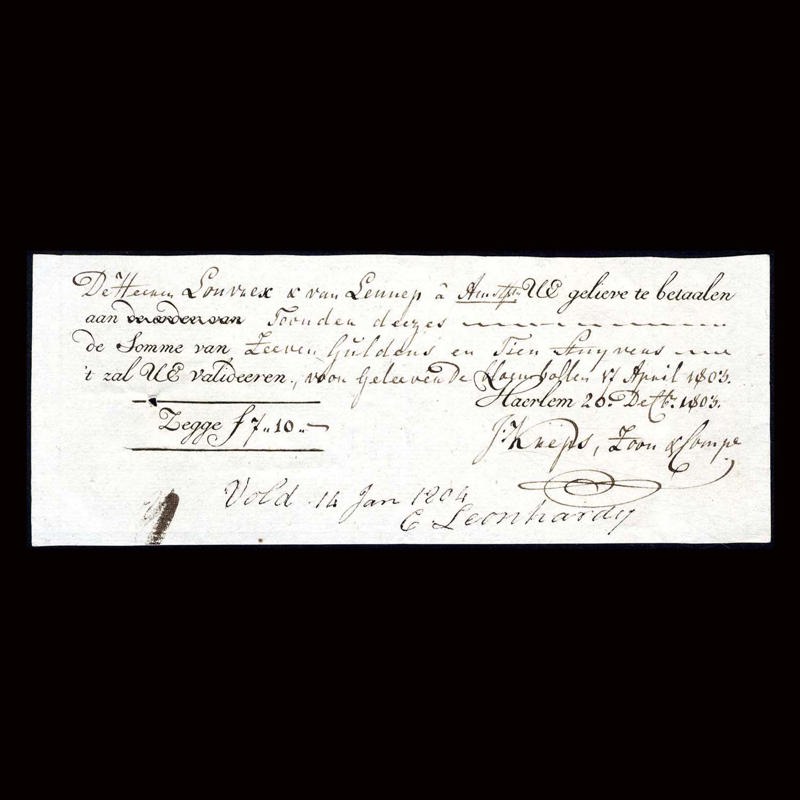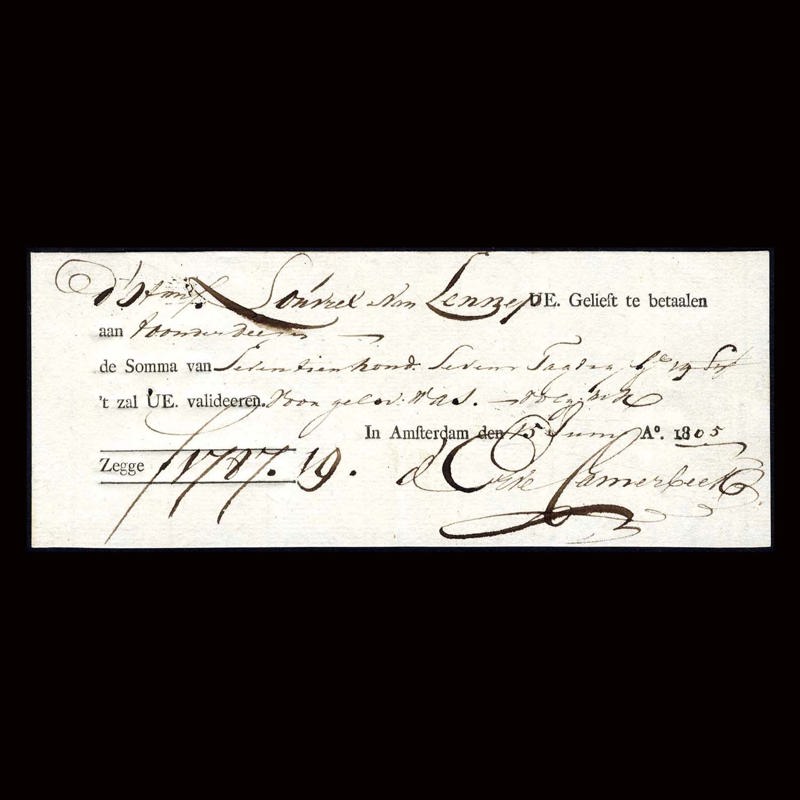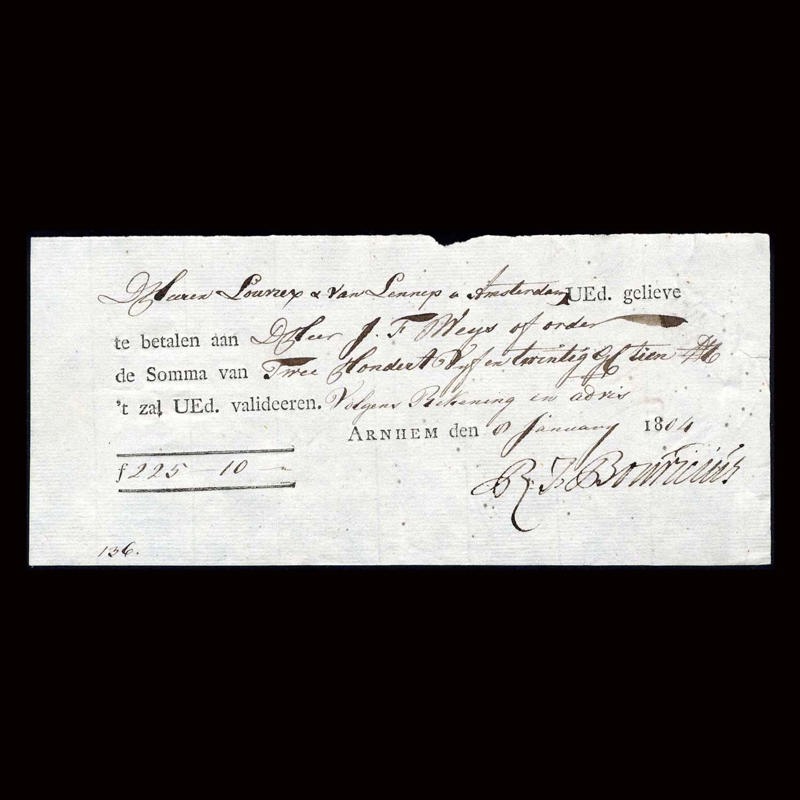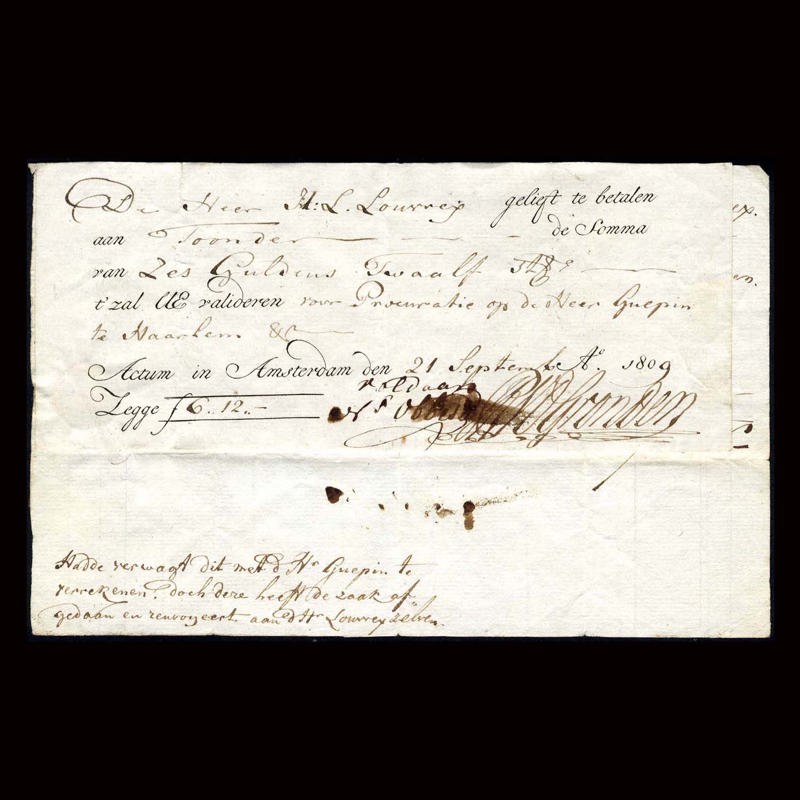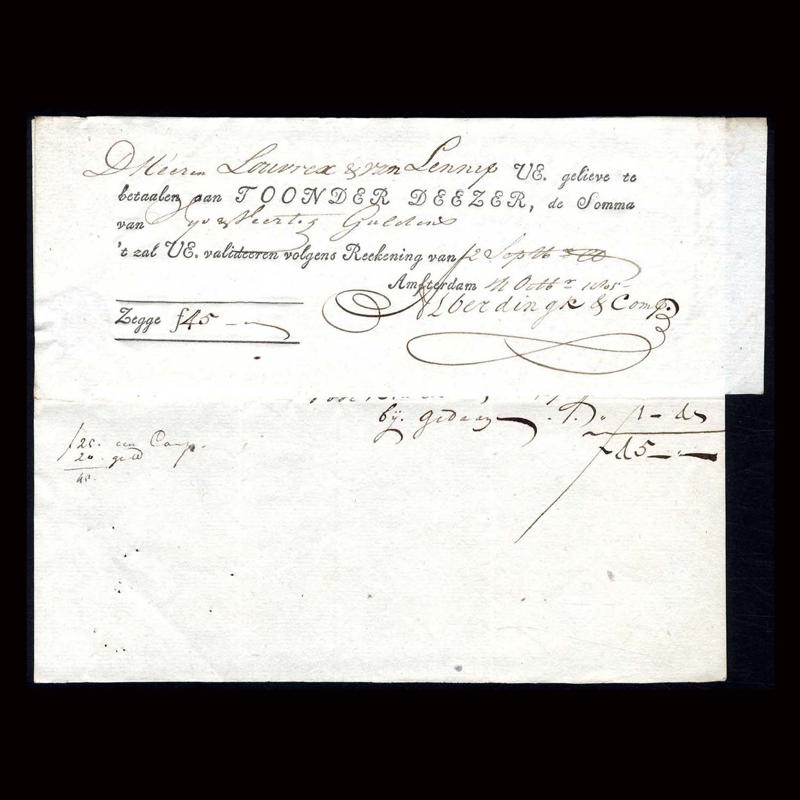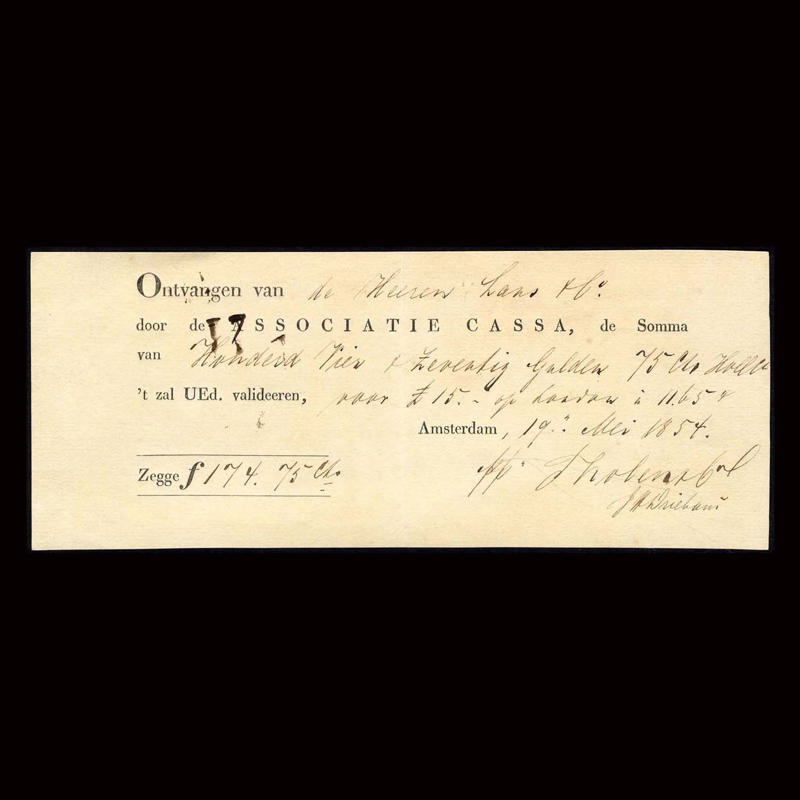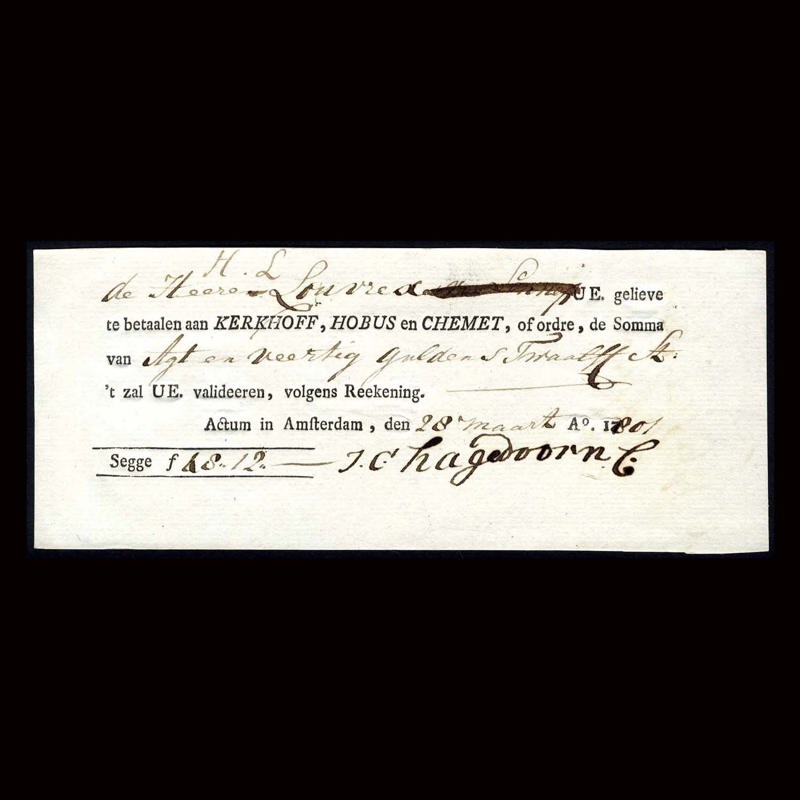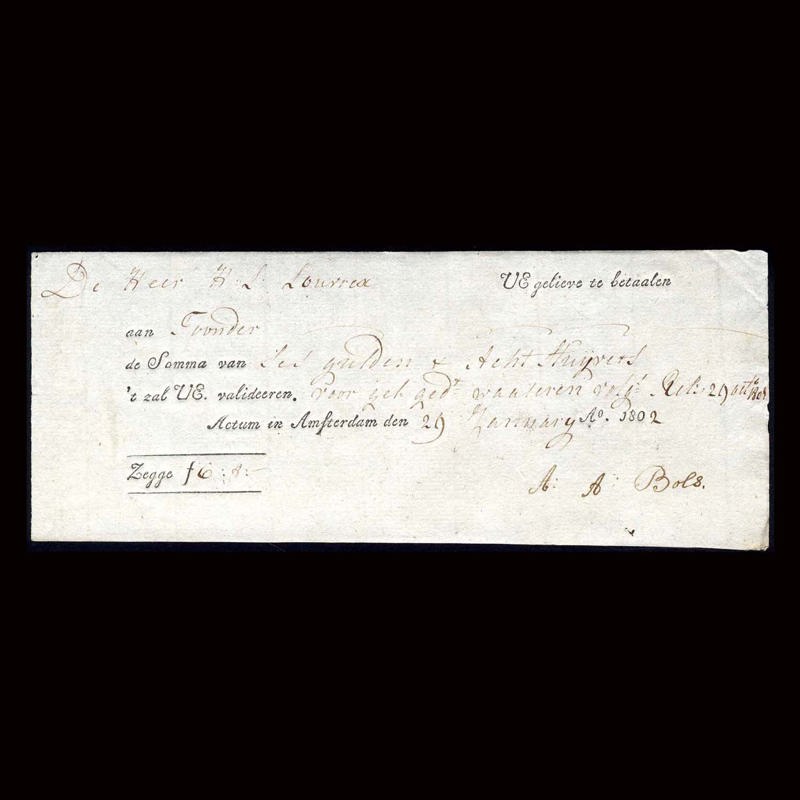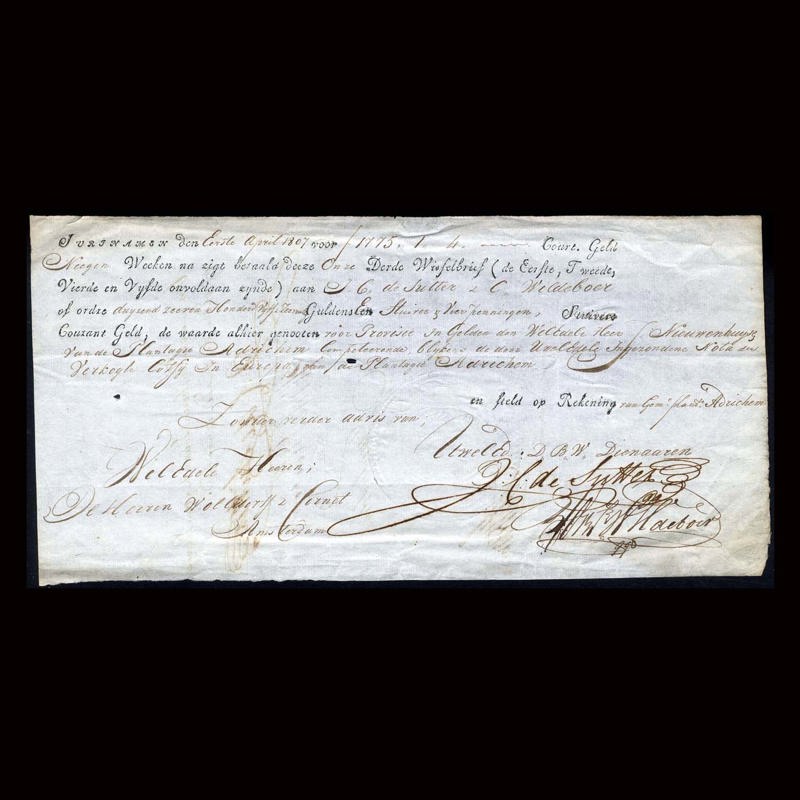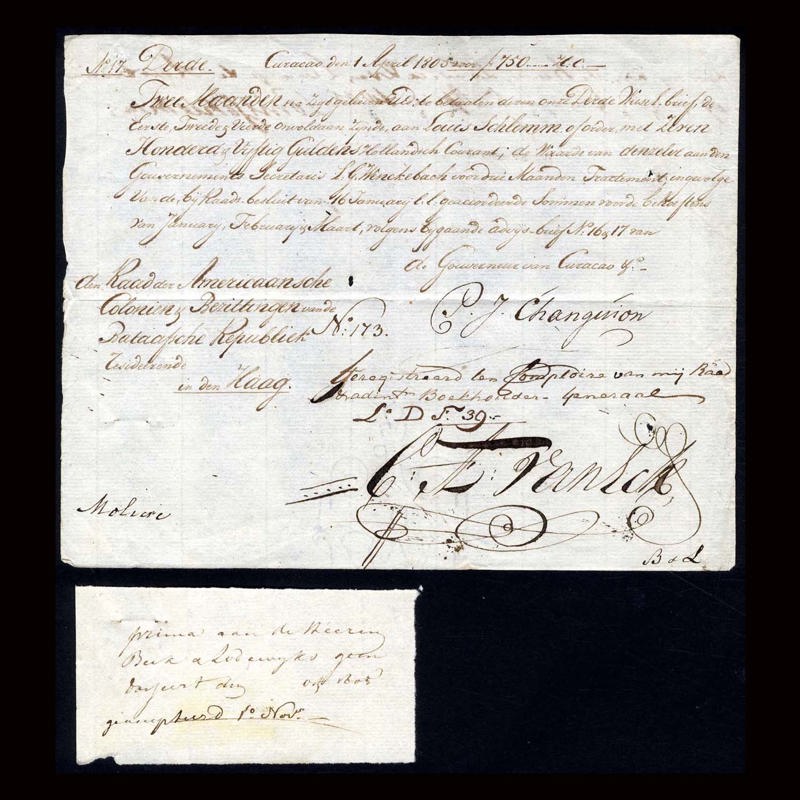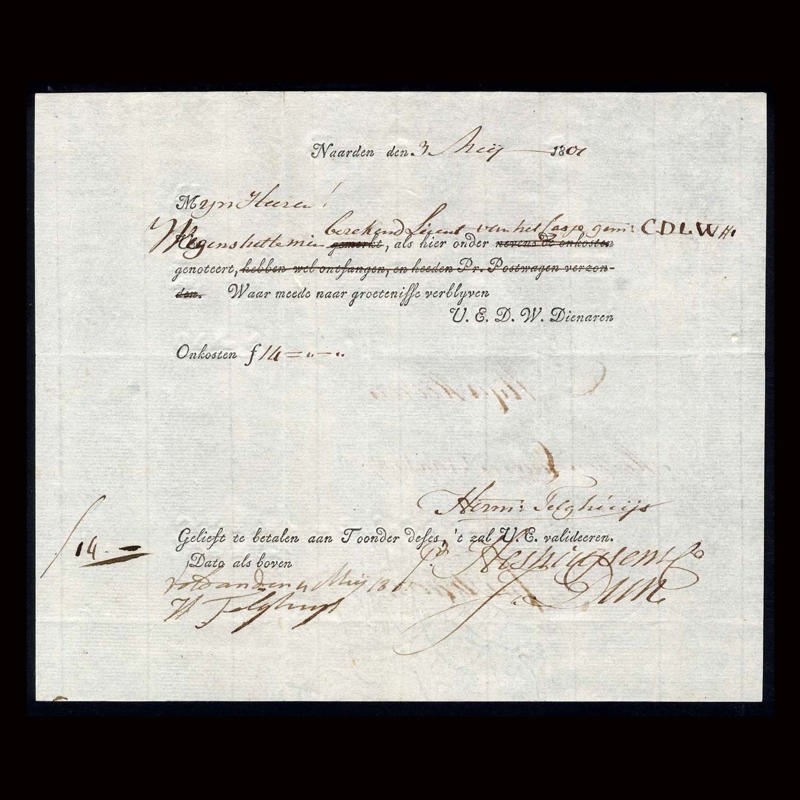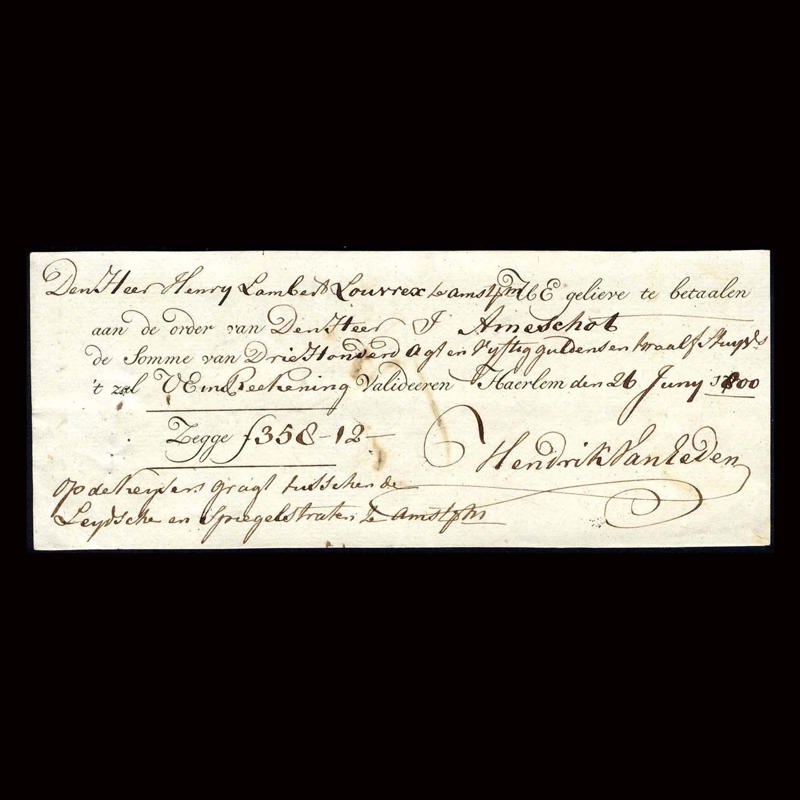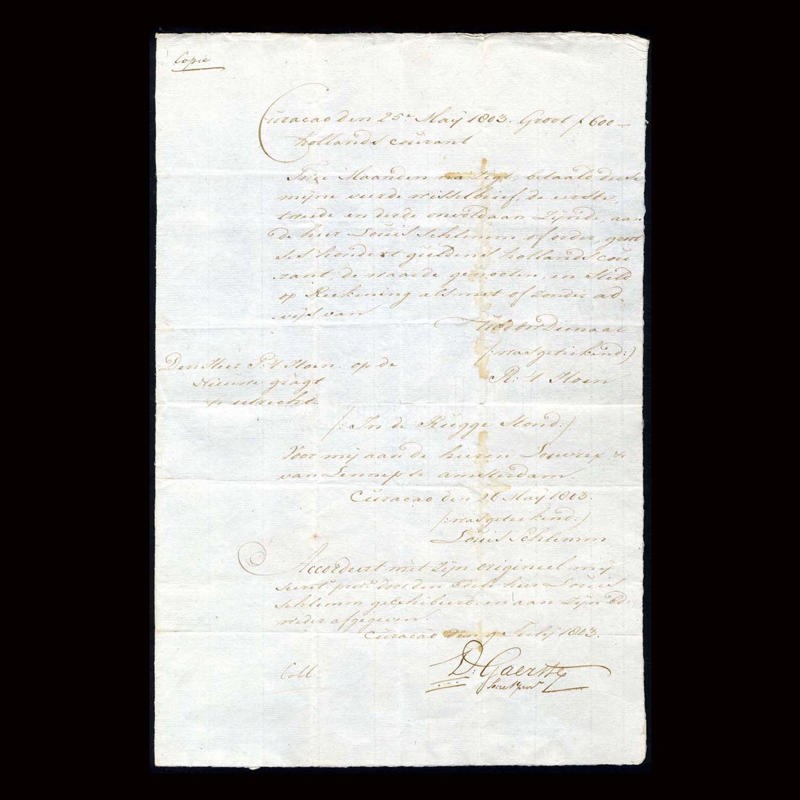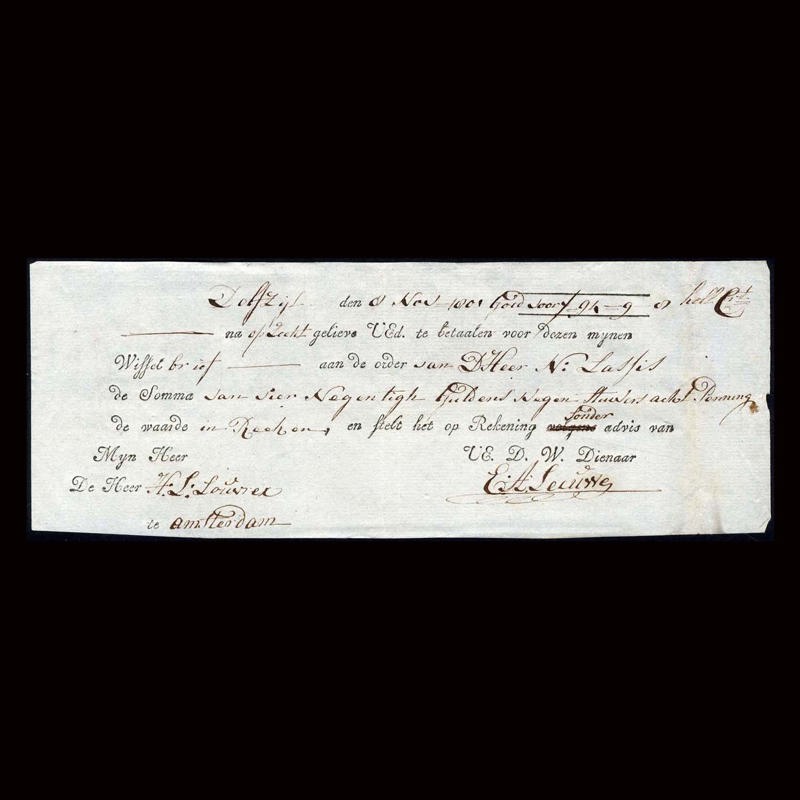
Collection Dutch cashier's notes
Precursors of our paper money!
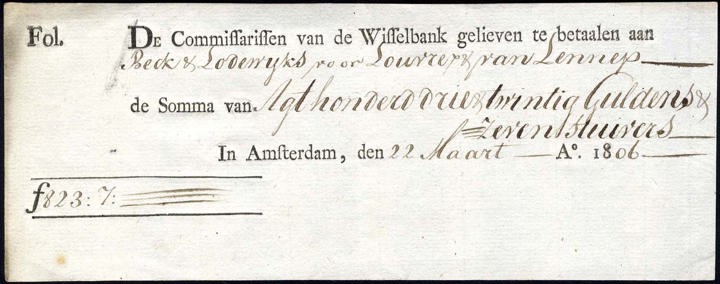
Collection description
A collection of approximately 180 cashier's notes and promissory notes of museum quality. Many cashier's notes are "bearer" notes, which can also be found on paper money. This is how these bearer notes were used. A unique collection from which notes will be included in the catalog of Dutch paper money in the future.
The quality of the notes can be described as VF to XF.
This collection can be viewed in Eindhoven.
Price: On request
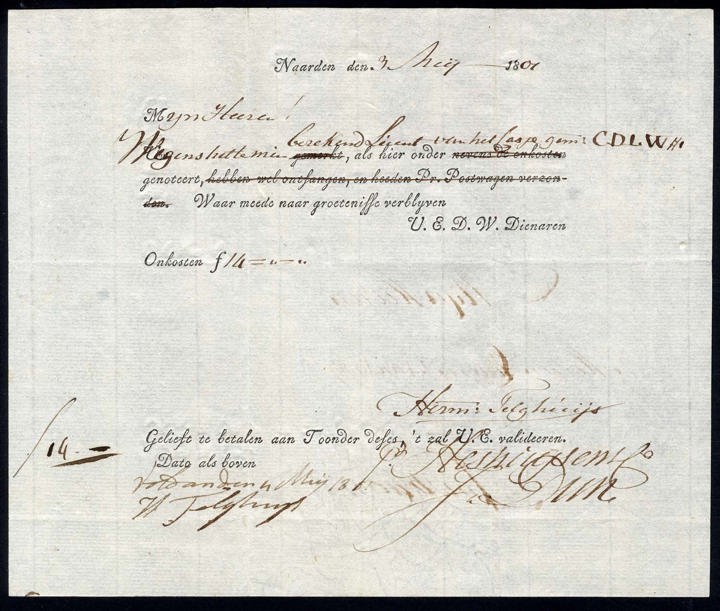
History of promissory and cashier's notes
Before 1814, cashiers and the issuance of cashier's notes played a crucial role in the financial history of the Netherlands. In addition to the famous Amsterdam Exchange Bank, there were numerous other cashier companies spread throughout the country that were active in providing financial services and issuing cashier's notes.
The Amsterdam Exchange Bank, established in 1609, was the most important and influential institution of its time. It functioned as a central bank where cashiers, traders, and merchants could exchange their money and obtain cashier's notes. The Exchange Bank had the exclusive right to issue notes, which were widely accepted as a means of payment.
The issuance of cashier's notes by the Exchange Bank and other cashier companies was based on public trust. These notes were paper certificates that contained a promise to be redeemed for cash. They facilitated trade transactions and offered a more flexible form of payment than the use of coins.
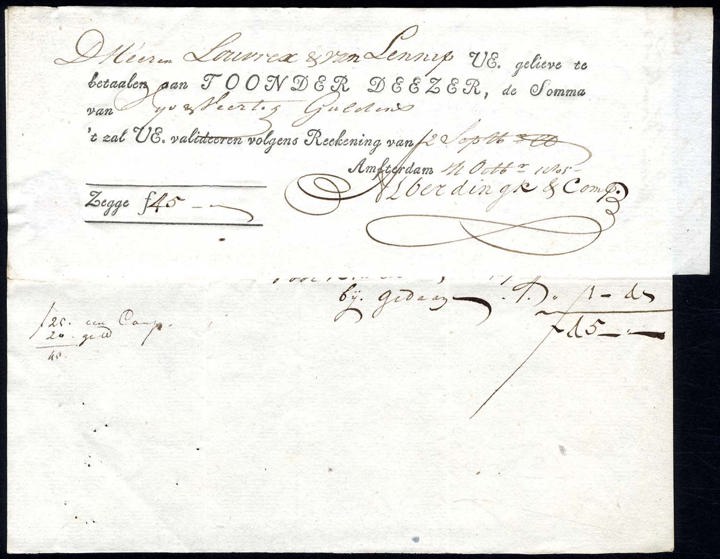
The role of cashiers, however, extended beyond the issuance of notes. They also served as intermediaries in financial transactions, such as providing loans, facilitating international trade, and safeguarding valuable goods. Cashiers held an important position in the local economy and played an active role in stimulating trade and investments.
In addition to the Exchange Bank, there were other cashier companies operating in the Netherlands. These companies, often private enterprises, offered similar services to the Exchange Bank. They were dispersed across different cities and regions and served as a vital link in the local financial system.
However, the issuance of cashier's notes by these different cashier companies was not without risks. There were cases of fraud and insolvency among some cashiers, which led to a loss of trust in their notes. To mitigate this risk, laws and regulations were introduced to regulate the cashier business and preserve public confidence.
With the establishment of De Nederlandsche Bank in 1814, the era of private cashiers came to an end, and the issuance of banknotes and oversight of the financial system were centralized. The role of cashiers and the issuance of cashier's notes gradually transitioned to the new central bank.
Request a viewing
Buy this collection?
Collectweb is the ultimate online platform for unique collections. We provide a place for new and experienced collectors to easily discover, buy, and sell expert-selected collectibles. With over 100,000 unique items, we help you find the perfect addition to your collection.
In a collection, you encounter many stories. That's precisely why something is worth preserving. At Collectweb, we thrive on telling these stories. By doing so, we not only convey the background of an item but also share the interest and passion that emanate from the story. This way, collectibles remain significant and valuable in their own way for generations to come.
In the current financial markets, a collection is an excellent way to diversify an investment portfolio. A rare collection holds its value and has the potential to become even more valuable over the years.
This collection can be viewed in Eindhoven, the Netherlands.
Please fill in your details on the left, and we will contact you as soon as possible to arrange an appointment.

